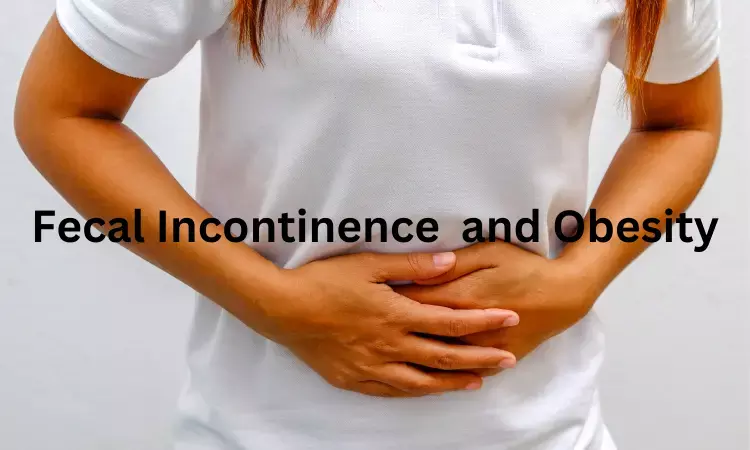- Home
- Medical news & Guidelines
- Anesthesiology
- Cardiology and CTVS
- Critical Care
- Dentistry
- Dermatology
- Diabetes and Endocrinology
- ENT
- Gastroenterology
- Medicine
- Nephrology
- Neurology
- Obstretics-Gynaecology
- Oncology
- Ophthalmology
- Orthopaedics
- Pediatrics-Neonatology
- Psychiatry
- Pulmonology
- Radiology
- Surgery
- Urology
- Laboratory Medicine
- Diet
- Nursing
- Paramedical
- Physiotherapy
- Health news
- Fact Check
- Bone Health Fact Check
- Brain Health Fact Check
- Cancer Related Fact Check
- Child Care Fact Check
- Dental and oral health fact check
- Diabetes and metabolic health fact check
- Diet and Nutrition Fact Check
- Eye and ENT Care Fact Check
- Fitness fact check
- Gut health fact check
- Heart health fact check
- Kidney health fact check
- Medical education fact check
- Men's health fact check
- Respiratory fact check
- Skin and hair care fact check
- Vaccine and Immunization fact check
- Women's health fact check
- AYUSH
- State News
- Andaman and Nicobar Islands
- Andhra Pradesh
- Arunachal Pradesh
- Assam
- Bihar
- Chandigarh
- Chattisgarh
- Dadra and Nagar Haveli
- Daman and Diu
- Delhi
- Goa
- Gujarat
- Haryana
- Himachal Pradesh
- Jammu & Kashmir
- Jharkhand
- Karnataka
- Kerala
- Ladakh
- Lakshadweep
- Madhya Pradesh
- Maharashtra
- Manipur
- Meghalaya
- Mizoram
- Nagaland
- Odisha
- Puducherry
- Punjab
- Rajasthan
- Sikkim
- Tamil Nadu
- Telangana
- Tripura
- Uttar Pradesh
- Uttrakhand
- West Bengal
- Medical Education
- Industry
Fecal incontinence and constipation more prevalent among Obese patients

Obesity has become a worldwide problem, being recognized as a "global epidemic" by the WHO in 1997. The recent studies have identified obesity as an independent risk factor for pelvic floor disorders, including urinary (UI) and fecal incontinence (FI); both of which are complex and under-diagnosed problems with physiologically and socially devastating consequences.
The American Journal of Gastroentrology from a cross sectional study reveals that obesity significantly impacts specific defecatory mainly fecal incontinence and prolapse symptoms and pathophysiologic findings.
The Cross-sectional study of consecutive patients meeting Rome IV criteria for FI and/or functional constipation, with data on body mass index (BMI), attending a tertiary center for investigation between 2017-2021. Clinical history, symptoms and anorectal physiologic test results were analyzed according to BMI categories.
The study found that
• A total of 1,155 patients (84% female) were included in the analysis (33.5% normal BMI; 34.8% overweight; 31.7% obese).
• Obese patients had higher odds of FI to liquid stools (69.9 vs. 47.8%, OR 1.96 [CI: 1.43-2.70]), use of containment products (54.6% vs. 32.6%, OR 1.81 [1.31-2.51]), fecal urgency (74.6% vs. 60.7%, OR 1.54 [1.11-2.14]) urge FI (63.4% vs 47.3%, OR 1.68 [1.23-2.29]), and vaginal digitation (18.0% vs 9.7%, OR 2.18 [1.26-3.86]).
• Higher proportions of obese patients had Rome criteria-based FI or coexistent FI and functional constipation (37.3%, 50.3%) compared with overweight (33.8%, 44.8%) and normal BMI patients (28.9%, 41.1%).
• There was a positive linear association between BMI and anal resting pressure (β 0.45, R2 0.25, p=0.0003), though the odds of anal hypertension were not significantly higher after Benjamini-Hochberg correction.
• Obese patients more often had a large clinically significant rectocele (34.4% vs. 20.6%, OR 2.62 [1.51-4.55]) compared with normal BMI patients.
Researchers concluded that “Obesity impacts specific defecatory (mainly FI) and prolapse symptoms and pathophysiologic findings (higher anal resting pressure, significant rectocele). Prospective studies are required to determine if obesity is a modifiable risk factor for FI and constipation.”
Reference: Chaichanavichkij, Pam MBChB, MRCS1,a; Vollebregt, Paul F MD, PhD1; Keshishian, Karekin MD, MRCS2; Knowles, Charles H PhD, FRCS1; Scott, S Mark PhD1. The clinical impact of obesity in patients with disorders of defecation: a cross-sectional study of 1,155 patients. The American Journal of Gastroenterology, July 07, 2023. | DOI: 10.14309/ajg.0000000000002400.
MSc. Neuroscience
Niveditha Subramani a MSc. Neuroscience (Faculty of Medicine) graduate from University of Madras, Chennai. Ambitious in Neuro research having worked in motor diseases and neuron apoptosis is interested in more of new upcoming research and their advancement in field of medicine. She has an engrossed skill towards writing and her roles at Medical dialogue include Sr. Content writer. Her news covers new discoveries and updates in field of medicine. She can be reached at editorial@medicaldialogues.in
Dr Kamal Kant Kohli-MBBS, DTCD- a chest specialist with more than 30 years of practice and a flair for writing clinical articles, Dr Kamal Kant Kohli joined Medical Dialogues as a Chief Editor of Medical News. Besides writing articles, as an editor, he proofreads and verifies all the medical content published on Medical Dialogues including those coming from journals, studies,medical conferences,guidelines etc. Email: drkohli@medicaldialogues.in. Contact no. 011-43720751


